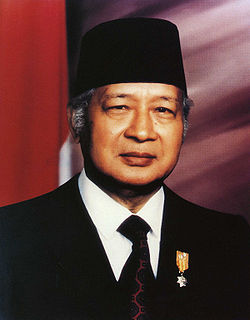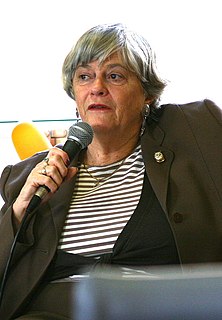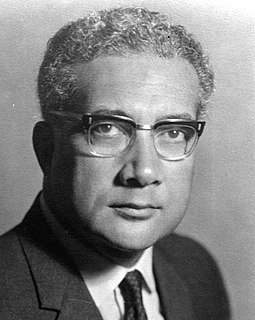A Quote by Jose Mujica
Fascism in Uruguay did not begin just with the military coup of 1973, but years before, even when there was still a government with a constitution and parliament.
Quote Topics
Related Quotes
There are leaks from the Embassy in Honduras. There was a coup in 2009. Obama broke with most of Latin America and even Europe and supported the military coup, still does. The ambassador in Honduras sent back a detailed analysis saying the coup was military, illegal, unconstitutional, and that the legitimate president was thrown out. Okay, we now know that Washington was perfectly aware of that and decided to support the military coup anyway. We should have known that at the time. The government has no right to keep that information secret.
In every enterprise ... the mind is always reasoning, and, even when we seem to act without a motive, an instinctive logic still directs the mind. Only we are not aware of it, because we begin by reasoning before we know or say that we are reasoning, just as we begin by speaking before we observe that we are speaking, and just as we begin by seeing and hearing before we know what we see or what we hear.
My friends in the opposition have forgotten that the constitution of the Philippines was amended in 1973 with their participation. The constitution mandates the administration, including the Batasan, or legislature, to convert slowly into a semiparliamentary form of government. The president in such a situation can issue decrees and edicts.
There should be some other provisions in the Constitution whereby if the Government is not functioning well, it can be dealt with. In a parliamentary democracy, this should be done only by Parliament. The prime minister should be answerable only to Parliament and it should only be Parliament that can install him or remove him.
In recent years the military has gradually been eased out of political life in Turkey. The military budget is now subject to much more parliamentary scrutiny than before. The National Security Council, through which the military used to exercise influence over the government is now a purely consultative body. But Turkish society still sees the military as the guarantor of law and order. The army is trusted, held in high regard - though not by dissident liberals. When things go wrong, people expect the military to intervene, as they've intervened over and over again in Turkish history.
In Latin America, in the past, it was almost impossible to guarantee democracy. There were military dictatorships, and nowadays there are not so many military dictatorships. Although we have a dictator in Honduras, as a result of a coup, now as a president, he is almost the only one I would say. But again led or managed, gestated by the U.S. government.
The equal protection standard of the constitution has one clear and central meaning - it absolutely prohibits invidious [repugnant] discrimination by government...Under our Constitution, any official action that treats a person differently on account of his race or ethnic origin is inherently [by nature] suspect and presumptively [probably] invalid...Under the Constitution we have, one practice in which government may never engage in the practice of racism - not even "temporarily" and not even as an "experiment."
There's been a coup, have you heard? It's the CIA coup. The CIA runs everything, they run the military. They're the ones who are over there lobbing missiles and bombs on countries. ... And of course the CIA is every bit as secretive as the Federal Reserve. ... And yet think of the harm they have done since they were established [after] World War II. They are a government unto themselves. They're in businesses, in drug businesses, they take out dictators ... We need to take out the CIA.
Now, the situation is much worse in Indonesia than 10 years ago. It is because then, there was still some hope. The progressive Muslim leader Abdurrahman Wahid, was alive and so was Pramoedya Ananta Toer. Mr Wahid, a former President of Indonesia, was a closet Socialist. He was deposed by a judicial coup constructed by the Indonesian elites and military, but many Indonesians still believed that he would manage to make a comeback.












































